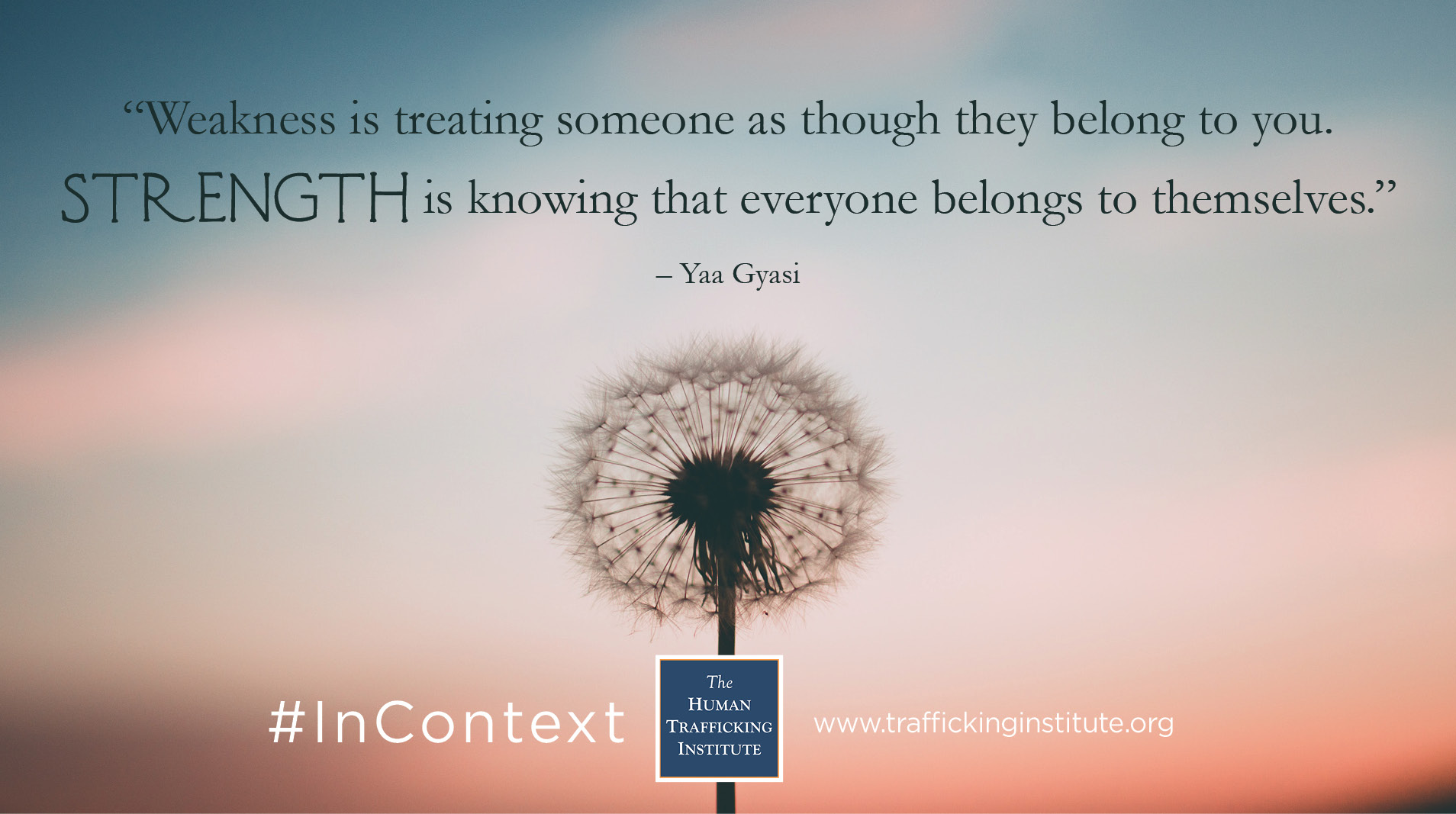Author Yaa Gyasi, who was born in Ghana but raised in Alabama, has had many homes. In addition to those two locations, she’s lived in Ohio, Illinois, Tennessee, California, Iowa, and New York. Her wide exposure to modern America allowed her to meet people – specifically African-Americans – whose lives and histories could easily have been her own. By chance, Trans-Atlantic slave traders failed to capture Gyasi’s family and that fortune led her to grow up on land her ancestors may have labored over for no pay if they had been less lucky.
Homegoing, Gyasi’s debut novel, opens with a focus on Gyasi’s first home, Ghana, near the start of the Trans-Atlantic slave trade. The novel introduces two half-sisters, Effia and Esi, unknowingly linked by the same mother, a former slave called Maame. The sisters are in the same location but in very different positions. Effia, who was once enslaved, becomes the wife a British governor of a slave castle. Esi, on the other hand, was once free and is then sold and sent to America as a slave.
By following these half-sisters and their descendants, the novel explores two alternative life paths: one of slavery, poverty, and racial tensions in America, and one of education and power amidst tragedy in Ghana. The novel’s purpose, in part, is to try to resolve these differences and explore what connects those on Effia’s path to those on Esi’s.
One of the most powerful moments in the novel comes from Maame. A young Esi, who is free at the time, tells Maame that if her father did not beat an enslaved girl for spilling two drops of water from a bucket, “everyone would think he was weak.” Maame, who knows firsthand what it is like to be enslaved, asks, “Weak, eh?” Esi whispers, “Yes,” and Maame responds:
“That I should live to hear my own daughter speak like this. You want to know what weakness is? Weakness is treating someone as though they belong to you. Strength is knowing that everyone belongs to themselves.”
This moment challenges Esi to think for herself instead of listening to everyone else in her village. Maame’s words hurt Esi because they force her to be strong and confront the humanity of those enslaved by her family.
Maame’s words also prompt Esi to learn about her mother’s past. Once Esi learns that Maame was once enslaved, she instantly looks at her mother differently. She sees her shoulders drooping and her eyes “always shifting.” Esi then reflects with shame on once spitting on an enslaved boy because an elder did so and called him “dirt.” In seeing that Maame belongs to herself even though she was once enslaved, Esi encounters the temporary nature of and universal susceptibility to slavery. In recognizing enslaved people as owners of themselves, Esi gains the strength her mother mentions. Esi’s evolution of thought in this section is especially poignant in light of Esi’s future as an enslaved person in America.
Gyasi states in an interview, “I could have been American.” She means that Trans-Atlantic slave traders could have captured and sold her ancestors instead of others. In saying so, and in writing a story that embraces chance and change in pathways through life, Gyasi sends the message that for her, for her ancestors, and for anyone who walks in this world, no one is safe from slavery. Every decision has an impact for years to come, and those who perpetuate enslavement harm all members of the next generations.
Let us follow Gyasi’s call to understand the world through the eyes of human trafficking victims, who still and always belong to themselves. By finding the strength to recognize the inherent autonomy of all people and to hold traffickers who do not respect this truth accountable, we can make sure that the impact we have on future generations is a positive one.




